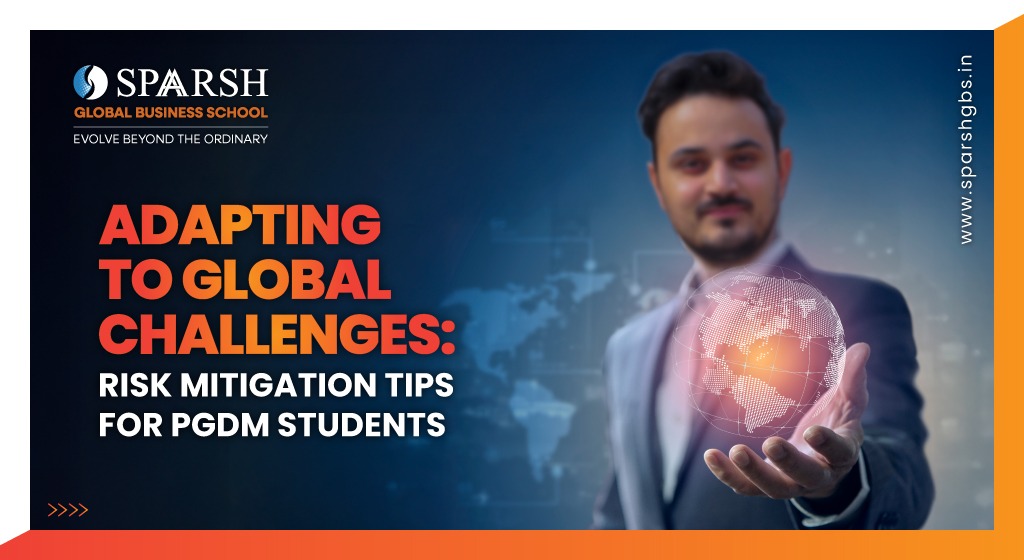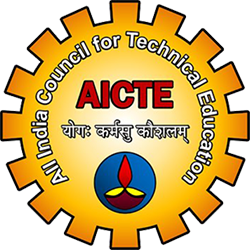
Modern organisations operate in a worldwide business landscape that can best be described as both dynamic and unpredictable, exposed to multiple risks that affect their functioning and profitability. Modern leaders of business enterprises must have the fundamental ability to predict, analyse and reduce risks from market slowdowns along with regulatory modifications, technological transformations and geopolitical disturbances. The skills mindset and theoretical expertise that PGDM provides develop a readiness to manage global business challenges. PGDM programmes prepare future executives for global business risk management by uniting theoretical knowledge with industrial insights and practical learning experiences.
Understanding Risk Management in Business Education
Risk management serves as a critical business lesson in PGDM programmes, designed to develop complete business experts. The curriculum of these programmes includes risk management training which helps learners develop expertise in recognising and interpreting risks that affect different industries. While studying finance, operations, international business, marketing and strategic management, students develop a systemic knowledge about risk analysis at a global business level.
PGDM programmes enable students to study successful risk management cases in business through real-world case studies and simulations that focus on business successes and failures. The evaluation of historical and modern business circumstances enables students to learn about sophisticated risk management methods and approved techniques for threat reduction.
Developing Analytical and Decision-Making Skills
These programmes create risk management capabilities in graduates through their focus on strengthening analytical abilities coupled with decision-making competencies. Learners receive capability in analysing substantial data sets that prepares them to make data-based business choices in the workplace. The combination of business analytics, financial modelling and market research classes at PGDM programmes teach learners to use quantitative methods for risk evaluation.
PGDM learners develop their critical thinking and problem-solving abilities, thanks to learning through cases and practical projects. Students learn to evaluate potential situations, evaluate various results along with designing proactive approaches that minimise adverse effects. Business simulations and live industry projects provide high-pressure learning experiences that enhance student capabilities to make informed decisions about risk challenges in real-time situations.
Enhancing Leadership and Crisis Management Abilities
Business leaders working in the volatile global environment must develop advanced crisis management skills. PGDM programmes provide students with capabilities to make crucial decisions through challenges as they support their organisations. Learners get honed in leadership skills through modules that focus on building resilience, adaptability and communication capabilities to inspire team members during unforeseen events.
Whether through industry leader conversations or mentorship programmes, PGDM learners acquire knowledge about the leadership qualities needed for successful risk management. Graduates acquire competency in managing crises and business continuity planning through workshops which prepares them to deal with disruptions effectively by combining strategic planning with calm decision-making.
Industry Collaborations and Practical Learning
PGDM programmes follow practical methods which give students adequate preparation to confront actual business risks. The application of theoretical knowledge in professional settings occurs through industry collaborations along with corporate internships and live projects. Through their work on real-life business issues, students gain enhanced expertise in identifying risks as well as evaluating and minimising such risks.
Added value to learner’s risk understanding comes through industry-specific learning provided by guest lecturers, experienced risk managers, business strategists, investment bankers and the like. Through direct industry interactions, PGDM graduates acquire essential competencies which enable them to tackle risks effectively during their work in global business operations.
Conclusion
Graduates benefit greatly from PGDM programmes because these courses enable them to address business risks present in the evolving international business industry. Risk management concepts that form part of the academic curriculum help develop graduates into decision-makers who demonstrate leadership skills to handle diverse business challenges confidently. Graduates who learn in global markets under regulatory frameworks and practical industry exposure become skilled at handling uncertainties in their future professional work.
The PGDM programme at Sparsh Global Business School includes comprehensive courses dedicated to training learners for global business risk management competence. Through its partnerships with industries, Sparsh Global Business School delivers experiential learning programmes that train learners to be leaders who drive sustainable business growth while facing complex challenges.
FAQ’s
- What specific risk management tools and techniques will students learn during the PGDM programme?
Students in our PGDM programme learn both qualitative and quantitative risk assessment tools including financial modelling and scenario analysis. They also gain proficiency in specialised software for business analytics and risk visualisation. Beyond technical tools, students develop frameworks for strategic risk management, crisis response planning and business continuity management through workshops and industry-led sessions. These practical skills are immediately applicable in internships and subsequent professional roles.
- How does the practical learning component of PGDM programmes enhance students' ability to manage emerging global risks?
The practical learning component exposes students to real-world scenarios involving emerging global risks through industry projects, simulations and case competitions. Students tackle technological disruptions and geopolitical challenges while learning from risk management professionals across different sectors. This combination of hands-on experience and expert guidance equips students with practical skills to address complex global risks in their future careers.



